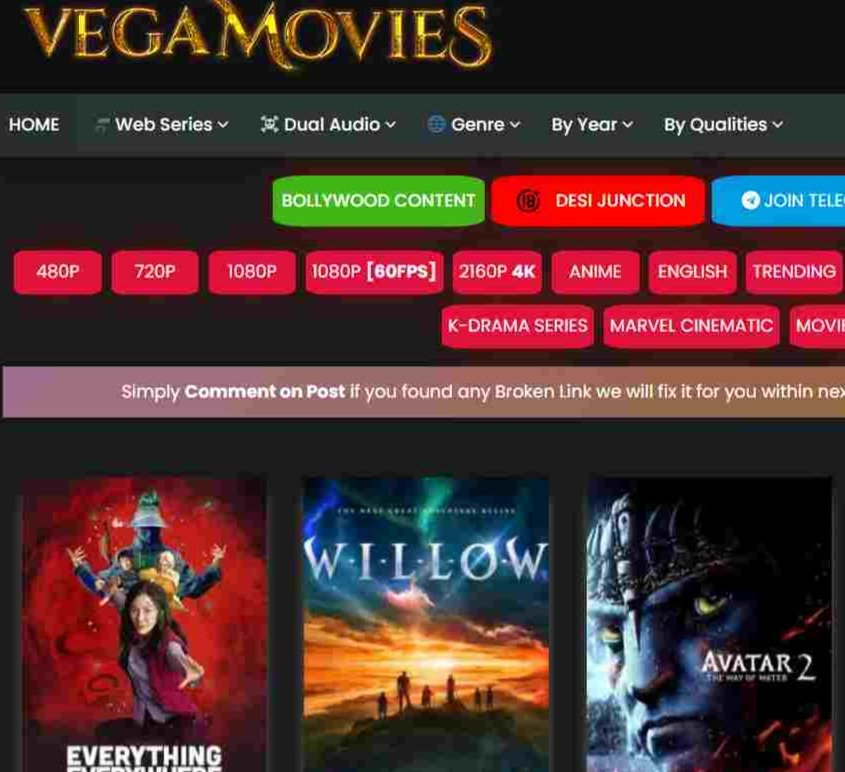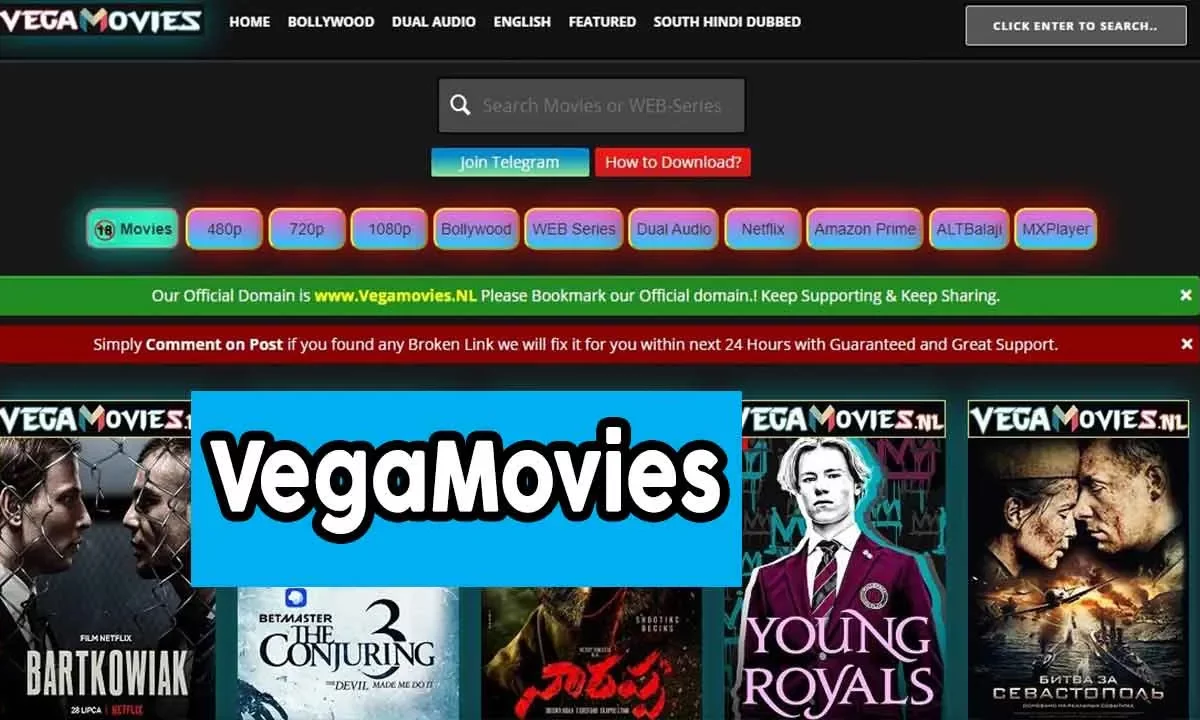Your Ultimate Vegamovie Archive Guide & Watchlist!
Has the digital age truly democratized access to cinematic treasures, or has it merely reshaped the gatekeepers? The emergence of the "vegamovie archive" presents a complex landscape, a blend of opportunity and potential peril, where the accessibility of films challenges established norms and the very fabric of copyright law.
The allure of freely available films, spanning genres and eras, is undeniable. For cinephiles, the "vegamovie archive" and its ilk represent a potential goldmine, offering a chance to discover obscure titles, revisit cherished classics, and delve into cinematic history without the constraints of traditional distribution models. Independent filmmakers, too, might see an advantage, believing a wider audience might discover their creations. But this seemingly utopian vision obscures a far more tangled reality. The legal underpinnings of such archives are often shaky, resting on a foundation of unauthorized distribution. The creators of these archives may be motivated by the pursuit of profit, the advocacy of free access to information, or some complex combination of both. Regardless of their motivation, the operation's nature raises critical questions about intellectual property rights, the financial viability of the film industry, and the long-term preservation of cinematic heritage. The impact of "vegamovie archive" and similar sites on the film industry extends beyond simple copyright infringement. It touches upon the financial structure that supports filmmaking, from studio production to independent ventures. When films are readily available for free, the incentives for paying for theatrical releases, streaming subscriptions, or home video purchases diminish. This erosion of revenue can lead to reduced investment in new films, affecting the creative ecosystem and limiting the diversity of content. Furthermore, the lack of official archiving and preservation efforts associated with some of these sites also threatens the films themselves. The quality of streams varies widely, ranging from passable to terrible. The lack of proper metadata and the potential for file corruption can lead to the degradation and even the loss of films, particularly those not widely available through other sources. This represents an ironic twist: an attempt to democratize access potentially leading to the diminishment of the art form itself.
Let's consider, for the sake of argument, a fictional individual involved in the operation of such an archive, we'll call him "Alex Riley," to illustrate the ethical and practical issues at play. This table offers a glimpse into the hypothetical details of Alex, highlighting the complexity of such an operation and its participants.
| Category | Details |
|---|---|
| Name | Alex Riley (Fictional) |
| Age | 42 |
| Location | Believed to be operating from a jurisdiction with relaxed copyright enforcement policies. (Hypothetical) |
| Education | Self-taught in website development and server management; some background in computer science (Fictional) |
| Career | Allegedly the primary administrator of the fictional "MovieVerse Archive," involved in content acquisition, server maintenance, and promotion. (Fictional) |
| Skills | Website coding, server administration, video encoding/transcoding, knowledge of digital rights management (DRM) and copyright law (theoretical). |
| Motivation | Reportedly a mix of ideological belief in free access to information, a desire to preserve "lost" films, and potential monetization through advertising. |
| Ethical Stance | Claims to be providing a service to film fans but struggles with the legal implications of his actions. |
| Legal Status | Potentially subject to lawsuits from copyright holders in various jurisdictions; currently operating with significant legal risk. |
| Income Source | Advertising revenue generated by ads on the website. (Hypothetical) |
| Website Link (Fictional - For illustrative purposes ONLY) | examplefictionalarchive.com (This is a fictional address) |
The implications of such activities extend beyond the immediate concerns of the film industry. The "vegamovie archive" model challenges existing legal frameworks designed to protect intellectual property. Copyright law, designed to incentivize creative production by granting exclusive rights to creators, finds itself strained when faced with the ease of digital distribution. The legal battles that might ensue are complex and expensive, and the outcomes uncertain, frequently depending on the laws of the jurisdiction and the ability of copyright holders to pursue legal action. The decentralized nature of many of these operations makes enforcement difficult. The operators of such sites may be based in countries with lax copyright enforcement, using proxy servers and other techniques to evade detection. This presents a significant challenge to those seeking to protect their rights.
The legal ambiguities are further complicated by the evolving nature of copyright law itself. Concepts like "fair use" and "transformative use" are often debated in the context of online archives. Can a film be considered "fair use" if it is being archived for preservation or educational purposes? Does the act of simply making a film available online constitute a transformative use that justifies its distribution without permission? The answers to these questions vary depending on the specific circumstances and the interpretation of the law by various courts. The concept of "orphan works"films whose copyright holder is unknown or cannot be locatedfurther complicates the legal landscape. These films might be considered ripe for preservation and access, but their unauthorized distribution may still violate copyright law.
Beyond legal considerations, the "vegamovie archive" phenomenon raises profound ethical questions. Is it ethical to access and share copyrighted material without permission, regardless of the perceived benefit to the public? What responsibility do users have to respect the rights of creators, even if they do not directly pay for the content? The ethical debate is nuanced, and there is no easy answer. Some argue that the public good of access to information outweighs the harm caused by copyright infringement, particularly for works that are no longer commercially viable. Others argue that unauthorized distribution undermines the financial incentives that drive creativity and innovation. The debate often comes down to a clash between individual rights and societal benefits.
The technical aspects of running a site like "vegamovie archive" are also worth scrutinizing. These archives frequently rely on a distributed network of servers and content delivery networks (CDNs) to host and stream films. The selection of films varies greatly, but it often includes a mix of mainstream titles, cult classics, and obscure works. The quality of the streams can vary, with some sites offering high-definition content while others provide low-resolution versions. The infrastructure needed to maintain such sites is complex. It requires significant investment in server hardware, bandwidth, and technical expertise. The operators need to constantly update their servers, manage the content library, and respond to legal threats or technical challenges. This operation necessitates the continuous updating and adapting to stay one step ahead of copyright enforcers and technological shifts.
The longevity of a website like "vegamovie archive" is far from guaranteed. It faces several potential threats, including legal action from copyright holders, technical difficulties, and financial constraints. Legal challenges can be expensive and time-consuming, and they can lead to the shutdown of the site or the removal of specific films. Technical difficulties, such as server failures or bandwidth limitations, can disrupt the user experience and damage the site's reputation. Financial constraints, such as the loss of advertising revenue, can make it difficult to sustain operations. The volatile nature of such operations highlights the precariousness of relying on them for access to films.
The impact of "vegamovie archive" extends to the broader issue of film preservation. Many of the films found on these sites are not available through legitimate channels, making the archives a potential source of preservation for works that might otherwise be lost. However, the preservation efforts are not always comprehensive or reliable. The lack of proper metadata, the potential for file corruption, and the lack of proper archiving practices can lead to the degradation or even the loss of films, particularly those not widely available through other sources. This represents an ironic twist: an attempt to democratize access potentially leading to the diminishment of the art form itself. Contrast this with the work of professional film archives, which adhere to rigorous preservation standards, to ensure the films' longevity. The differences are substantial. The "vegamovie archive" model offers a snapshot of cinematic history but often lacks the long-term commitment to preservation that is essential to safeguarding the art form.
The user experience varies significantly across different "vegamovie archive" websites. Some sites offer a clean and user-friendly interface, while others are cluttered and difficult to navigate. The quality of the streams also varies, ranging from high-definition to low-resolution versions. The availability of subtitles and closed captions is also inconsistent. The advertising practices employed by these sites can also negatively impact the user experience. Many sites rely on intrusive ads to generate revenue, which can be disruptive and potentially expose users to malware or other risks. The varying quality of the user experience contrasts sharply with the standards of legitimate streaming services and online retailers.
Another layer of complexity comes with the question of how these sites acquire the films. This process involves several methods, all often based on unauthorized access. Some sites engage in direct ripping from DVD or Blu-ray discs. This involves the use of specialized software to bypass copy protection mechanisms. Others obtain films from other online sources. These sources may include torrent sites, other illegal streaming sites, or even compromised servers. Some operators might rely on insider sources or other methods to obtain pre-release copies of films. The methods used by these sites are frequently illegal, and they contribute to the widespread problem of digital piracy.
The discussion around "vegamovie archive" is also intertwined with the rise of streaming services. Streaming services like Netflix, Amazon Prime Video, and Disney+ have revolutionized how we consume films and television shows. However, even these platforms are subject to licensing restrictions. Many films are not available on streaming services or are only available for a limited time. This situation creates a demand for alternative sources, such as "vegamovie archive", which can fill the gap. The availability of content through these archives can be seen as both a reaction and a challenge to the traditional streaming models. The archives thrive on the gaps in the existing commercial landscape. They provide access to films that are not available, filling a void that could otherwise be addressed by a more robust and diverse streaming market.
Furthermore, the "vegamovie archive" phenomenon touches upon the broader question of media literacy and digital citizenship. Many users of these sites may not fully understand the legal and ethical implications of their actions. They may not be aware of the impact of their choices on the film industry, the creative community, and the long-term preservation of cinematic heritage. Educating users about the issues surrounding copyright, intellectual property, and digital ethics is essential. Schools, libraries, and community organizations can play a vital role in promoting media literacy. By raising awareness about these issues, we can foster a more responsible and informed approach to consuming media.
The fight against online piracy is multifaceted and ongoing. Copyright holders employ a range of strategies to protect their intellectual property, including sending takedown notices, filing lawsuits, and partnering with internet service providers to block access to infringing sites. Technological measures, such as DRM (Digital Rights Management) and watermarking, are used to prevent unauthorized copying and distribution. However, the fight against piracy is a constant game of cat and mouse. As soon as one site is shut down, another one emerges to take its place. The decentralized nature of the internet and the technical sophistication of pirates make it difficult to completely eliminate piracy.
The evolution of "vegamovie archive" and similar sites underscores the ongoing tension between the desire for access to information and the protection of intellectual property rights. The archives are not just simple repositories of films, they are also symptomatic of a more complex cultural and technological shift. The question of how to balance these competing interests will continue to shape the future of the film industry and the way we experience and preserve cinema.


